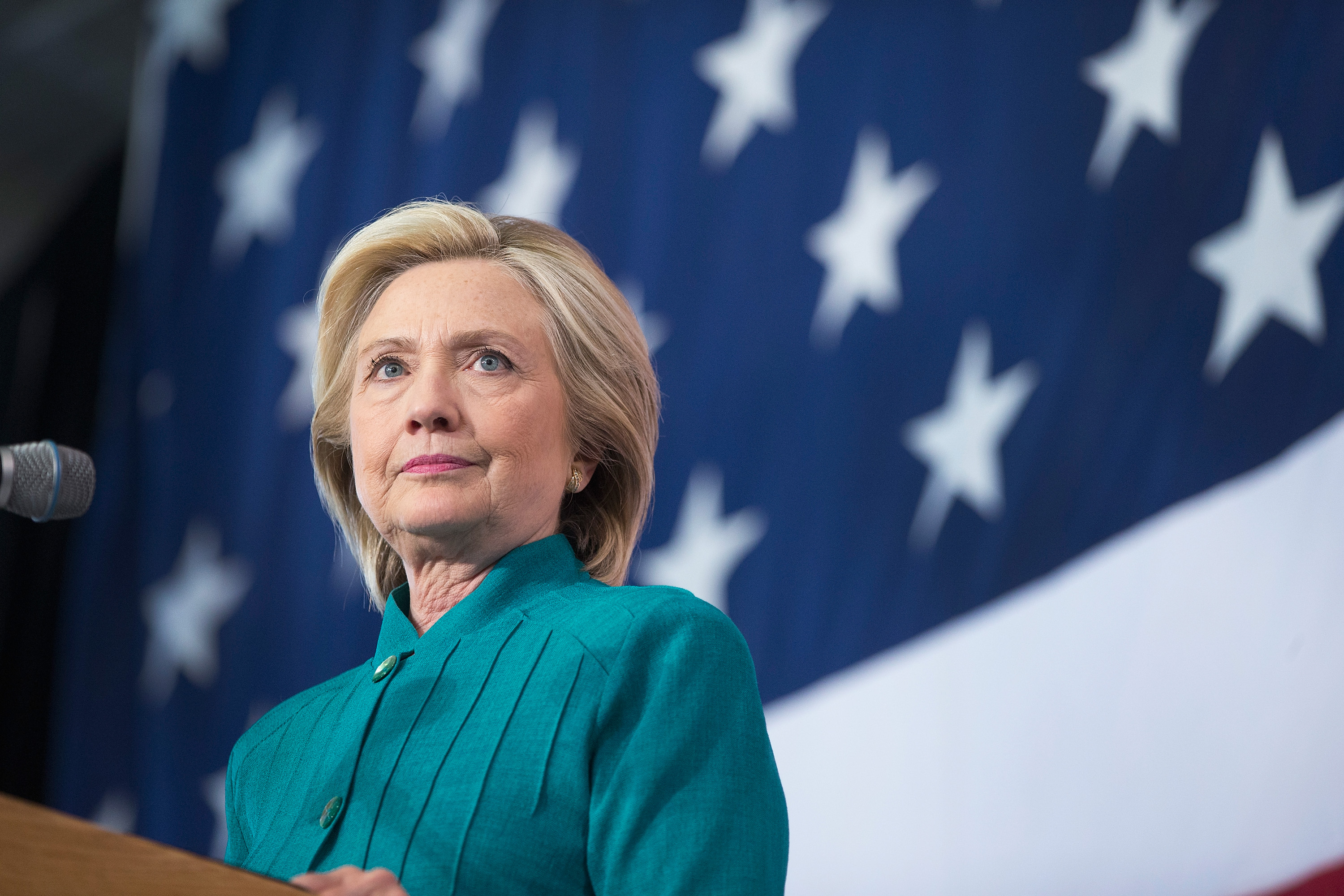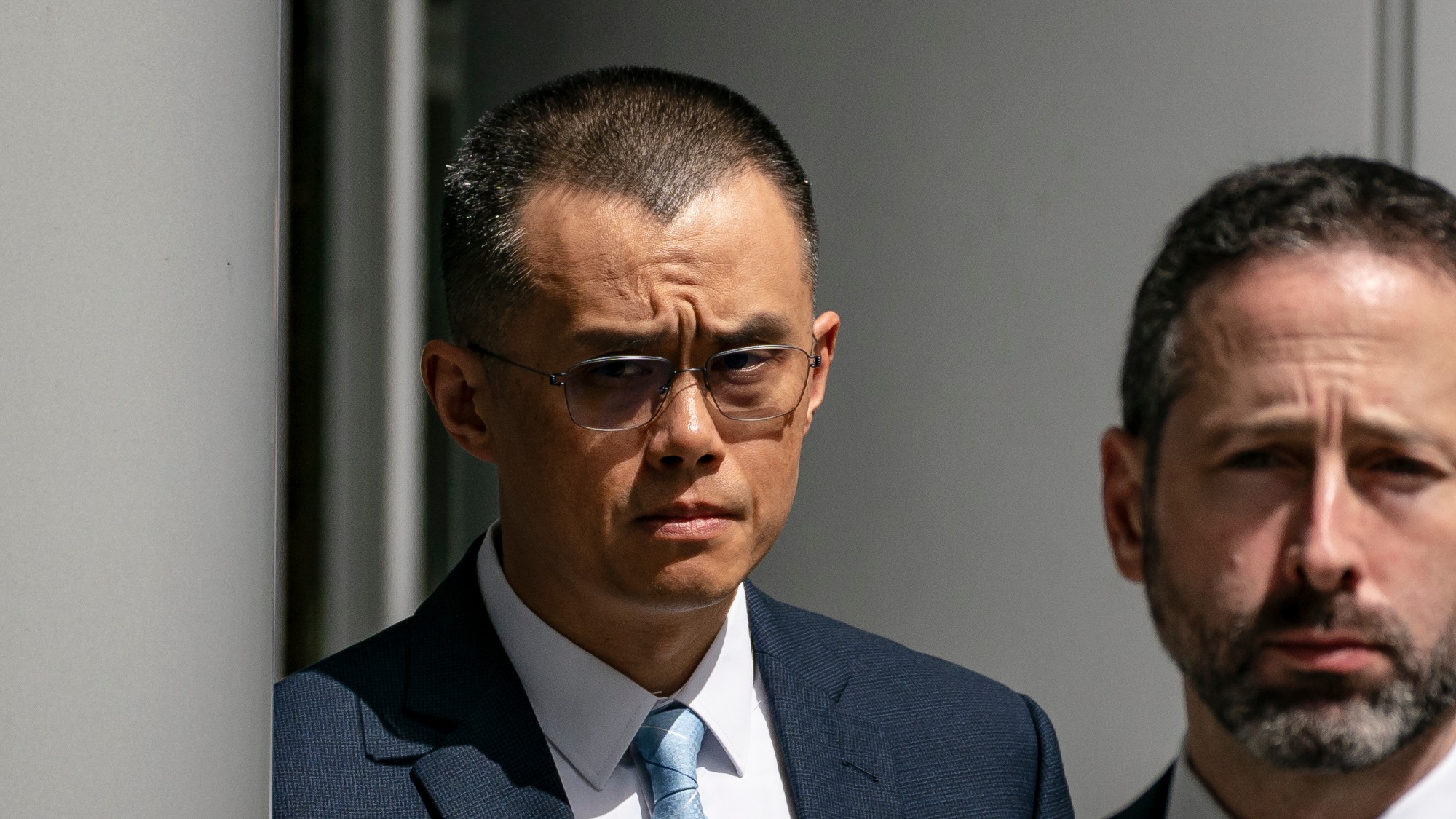Hillary Clinton's campaign isn't about populist ideals. It's about Hillary Clinton.
Is anyone besides Hillary Clinton excited by the idea of a President Hillary Clinton?


Democratic frontrunner Hillary Clinton tried for a populist reboot of her meticulously stage-managed campaign over the weekend. But look beyond the spin, and you'll see the former secretary of state offered nothing new or exciting or bold. In fact, her big speech was less a reboot than it was a rerun.
Hillary Clinton has essentially spent the past 15 years running for president. Returning to the White House is the singular motivation driving everything in her public life. The Clintons' strategy as they prepared to leave the White House in early 2001 could not have been clearer. They intended to make their departure temporary, preferably returning at the end of an Al Gore presidency, by having the first lady establish her credibility by building her own career in electoral politics. The Clintons seized on an open Senate seat in New York, and expected to launch their second bid for the White House after an easy re-election bid in 2006.
That strategy worked — sort of. Gore lost a nail-biter election in 2000 to George W. Bush, which made a Democratic bid in 2008 even easier. The Clintons had leveraged their political power through Sen. Clinton's Capitol Hill career and with their family foundation, collecting chits from Wall Street and party movers and shakers. Team Clinton ran the 2008 presidential campaign as a preordained coronation, betting that the bitterness of the Bush era meant a good environment for Clinton nostalgia. Unfortunately for the Clintons, Democrats didn't want to embrace the past. They chose the future, in the form of one Barack Obama.
The Week
Escape your echo chamber. Get the facts behind the news, plus analysis from multiple perspectives.

Sign up for The Week's Free Newsletters
From our morning news briefing to a weekly Good News Newsletter, get the best of The Week delivered directly to your inbox.
From our morning news briefing to a weekly Good News Newsletter, get the best of The Week delivered directly to your inbox.
The Clinton project was far from over, however. Hillary Clinton took the job of secretary of state to add executive and foreign-policy experience to her resume, after embarrassing herself in the 2008 campaign by claiming foreign-policy expertise with the lie that she'd landed in Tuzla under fire during the Balkans wars. After four years at the State Department, Clinton left in early 2013. It was the first time in 20 years that both Bill and Hillary Clinton had no official office in the federal government. They did not plan on keeping it that way for long.
Clinton soon published her second memoir, Hard Choices. It revealed little insight and offered even less political conviction. The lackluster reviews got overshadowed by Clinton's claims to have been "dead broke" coming out of the White House while she and Bill earned millions in advances for their first two books. After a few weeks, Team Clinton slipped off the public stage to recalibrate.
Clinton came back early this year — and once again, she appeared to have nothing to add to the political conversation. She just really, really wanted to be president.
Meanwhile, a series of scandals involving the Clinton Foundation, her secret email system while at the State Department, and questions about the connections between Bill Clinton's paydays and entities having business before the State Department dominated the headlines. Clinton offered no serious answers to any of those scandals.
A free daily email with the biggest news stories of the day – and the best features from TheWeek.com
Nor did she do much talking about anything else as she traveled through the key early primary states over the next three months. She avoided clearly staking out policy positions. She dodged reporters. Even in her claimed areas of policy expertise, Clinton and her team refused to get pinned down — on ISIS strategy and on the Trade Promotion Authority in particular. While the progressives she courted rallied to embarrass President Obama on trade, all Team Clinton would concede was that the candidate was keeping an open mind on the matter.
With the campaign hiding behind skittish generics, Clinton and her advisers decided to hype a reboot. They staged a big speech on Roosevelt Island in New York City, and played it up as though it would be a re-debut. The media gathered to hear Clinton finally stake out her positions and her agenda. And once again, Team Clinton offered a rerun.
The Atlantic's Molly Ball found it "almost aggressively pedestrian," in "a surprisingly small venue that did not fill up." Ball argued that Clinton offered "a barrage of proposals," but a read of the speech transcript shows that Clinton offered at best a laundry list of traditional liberal agenda items, none of which would distinguish her from almost any other Democratic presidential contender. It more closely resembled a State of the Union speech than a campaign call to arms, especially in the manner in which it was delivered. "Clinton read it slowly off the teleprompter," Ball wrote to describe the "flat" delivery, "articulating every word, sometimes with odd emphasis, in a near-monotone."
As if to underline the dustiness of her tired strategy and message, the former secretary of state decided to use a 50-year-old pop-culture reference to attack Republicans. "Now, there may be some new voices in the presidential Republican choir," Clinton said in one of the few moments that showed any dynamism, "but they're all singing the same old song — a song called 'Yesterday.'"
The Beatles recorded that ballad 50 years ago this month, when Hillary Clinton graduated from high school. Marco Rubio, who wouldn't be born for another six years, has campaigned this spring in part on the slogan that "Yesterday is over." His team leaped to take advantage of the contradiction, and Clinton's case of projection.
Even more telling, though, was the lack of any substance on issues that are priorities for American voters. She weighed in with no particularly interesting or surprising stands on America's hottest debates. She made just one passing reference to trade that offered no insight whatsoever on TPA or the massive Pacific trade deal that House Democrats all but submarined last week. She made passing mention of foreign policy and national security by pledging — wait for it — to "do whatever it takes to keep Americans safe." After four years at State, one would expect her to elaborate on exactly what whatever looks like, but Clinton offered nothing at all. The only reference to creating jobs in the entire speech was part of her pledge to fight climate change — a very low priority for American voters — and promised that "this will create millions of jobs and countless new businesses." Barack Obama promised that, too. How did that work out?
This was not a relaunch, let alone a reboot. The event turned out to be just another Saturday afternoon rerun. And it's a movie we've seen many times before: The Clintons lust for power, not to affect populist change on a national scale, but to accrue power for the Clintons.
Edward Morrissey has been writing about politics since 2003 in his blog, Captain's Quarters, and now writes for HotAir.com. His columns have appeared in the Washington Post, the New York Post, The New York Sun, the Washington Times, and other newspapers. Morrissey has a daily Internet talk show on politics and culture at Hot Air. Since 2004, Morrissey has had a weekend talk radio show in the Minneapolis/St. Paul area and often fills in as a guest on Salem Radio Network's nationally-syndicated shows. He lives in the Twin Cities area of Minnesota with his wife, son and daughter-in-law, and his two granddaughters. Morrissey's new book, GOING RED, will be published by Crown Forum on April 5, 2016.
-
 Has Zohran Mamdani shown the Democrats how to win again?
Has Zohran Mamdani shown the Democrats how to win again?Today’s Big Question New York City mayoral election touted as victory for left-wing populists but moderate centrist wins elsewhere present more complex path for Democratic Party
-
 Millions turn out for anti-Trump ‘No Kings’ rallies
Millions turn out for anti-Trump ‘No Kings’ ralliesSpeed Read An estimated 7 million people participated, 2 million more than at the first ‘No Kings’ protest in June
-
 Ghislaine Maxwell: angling for a Trump pardon
Ghislaine Maxwell: angling for a Trump pardonTalking Point Convicted sex trafficker's testimony could shed new light on president's links to Jeffrey Epstein
-
 The last words and final moments of 40 presidents
The last words and final moments of 40 presidentsThe Explainer Some are eloquent quotes worthy of the holders of the highest office in the nation, and others... aren't
-
 The JFK files: the truth at last?
The JFK files: the truth at last?In The Spotlight More than 64,000 previously classified documents relating the 1963 assassination of John F. Kennedy have been released by the Trump administration
-
 'Seriously, not literally': how should the world take Donald Trump?
'Seriously, not literally': how should the world take Donald Trump?Today's big question White House rhetoric and reality look likely to become increasingly blurred
-
 Will Trump's 'madman' strategy pay off?
Will Trump's 'madman' strategy pay off?Today's Big Question Incoming US president likes to seem unpredictable but, this time round, world leaders could be wise to his playbook
-
 Democrats vs. Republicans: who are US billionaires backing?
Democrats vs. Republicans: who are US billionaires backing?The Explainer Younger tech titans join 'boys' club throwing money and support' behind President Trump, while older plutocrats quietly rebuke new administration



